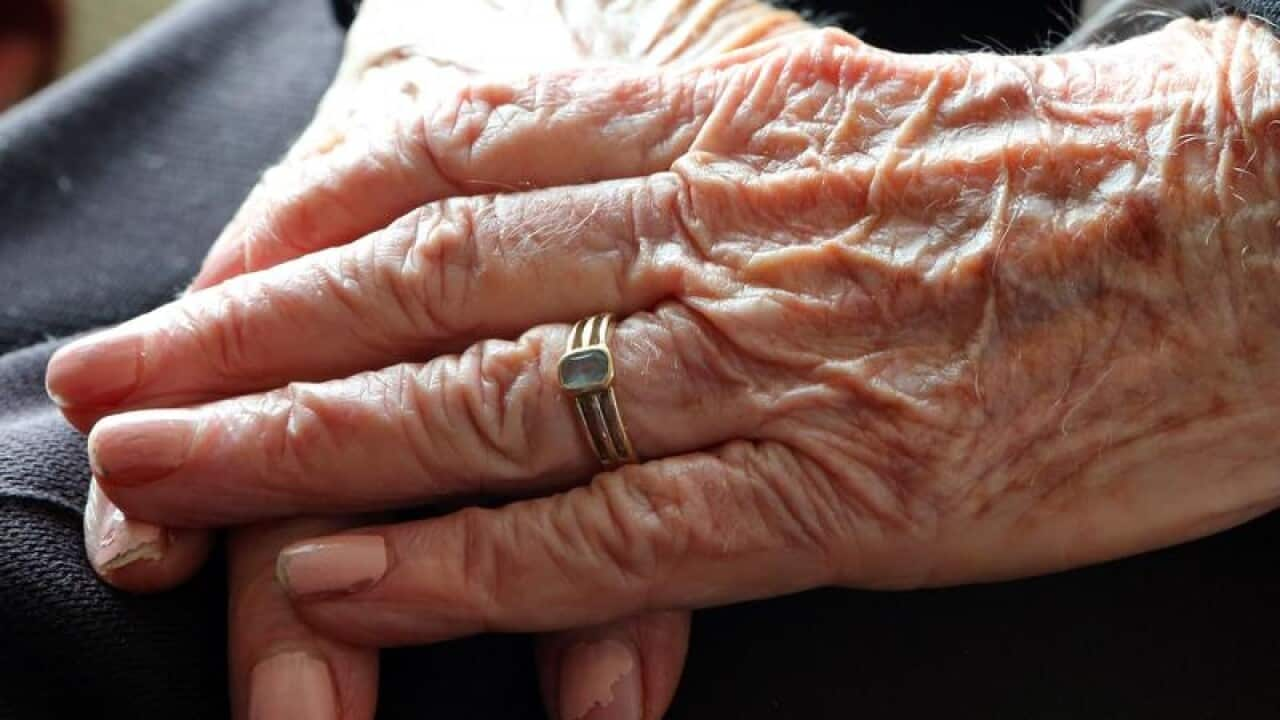Dementia cases are set to rise in every country, although the largest growth is expected in north Africa and the Middle East; and the smallest increase is forecast for Asia Pacific and western Europe.
Advocates in Australia are calling for a scaling up of programs tackling lifestyle risk factors, and greater support for research into treatments.
Dementia is the second leading cause of death of Australians, according to the Australian Bureau of Statistics.
The condition involves a deterioration in cognitive function beyond the normal effects of ageing and now has an estimated global societal cost of $1.8 trillion.
A study, published in the Lancet Public Health journal, for the first time uses comprehensive country-level estimates to forecast the prevalence of dementia in those aged 40 years and over in 195 nations.
It also accounts for the potential effects of trends in exposure to known dementia risk factors.
Lead study author, Emma Nichols, from the University of Washington, warned that by 2050, the number of adults with dementia is expected to triple - to 153 million.
"We expect dementia, the number of people with dementia to increase in every country globally, regardless of the world region. So this is an important, important disease to consider in terms of future planning, no matter where you are," she said.
"It's just that the magnitude of those increases does vary. So, for example, in Japan, where population ageing has largely already happened or, you know, has undergone more population ageing than many other countries, that is less of a factor and the expected increases are of the smaller magnitude. But overall, we still do need to consider the importance of any increase in preparing for the needs of this population, as well as any potential interventions and future research that can help us."
The regions set for the biggest increase are north Africa and the Middle East, with a forecast 367 per cent rise, and eastern sub-Saharan Africa, with 357 per cent growth expected.
The smallest increases are forecast for the Asia Pacific with a 53 per cent forecast rise and western Europe with growth forecast at 74 per cent.
Ms Nichols said population growth and ageing is driving the projected increase.
"The projections in North Africa in the Middle East were were quite large, and this was due to large increases, both in population growth and population ageing. And so these two demographic factors in particular in that region, drove these large anticipated increases in dementia burden," she said.
"So this is really something that governments and policymakers in these countries need to be aware of in terms of planning for the numbers of people with dementia that we anticipate to be living in these places in the future."
Lifestyle key to reducing dementia risk
Education through public health campaigns has arrested some of the growth, with a forecast reduction of 6.2 million global cases by 2050.
But that has been counteracted by the projected rise in obesity, high blood sugar and smoking - which is expected to result in an extra 6.8 million dementia cases.
Although dementia mainly affects older people, there are lifestyle actions that can be taken to reduce the risk.
A Lancet commission in 2020 suggested up to 40 per cent of cases could be prevented or delayed if 12 risk factors are addressed: low education, high blood pressure, hearing impairment, smoking, midlife obesity, depression, physical inactivity, diabetes, social isolation, excessive alcohol consumption, head injury and air pollution.
Associate Professor Michael Woodward, the honorary medical adviser for Dementia Australia, said there has been a noticeable impact from public health campaigns.
Efforts in this area will need to be ramped up to stop the projected rise to one million dementia cases in Australian adults by 2050, he said.
"Public health campaigns about protecting your brain. We had similar campaigns a couple of decades ago (in the 1980s) about the important of physical fitness. But we could have a more general program about the importance of mental activity, physical fitness, a good diet," he said.
"The Mediterranean diet, which many of your listeners would be well aware of, is very important for brain health, and heart health and indeed general health. So if we could publicise these more generally, we could make a difference ... We've got to be planning for how our society is going to look with so many people with dementia. How do we care for them? Where do we care for them? And also we need to develop treatments that might actually target the underlying pathology."
Diagnosis delays
The study did not take into account the impact of COVID-19 resulting in a missed dementia diagnosis due to a lack of capacity in the health system.
But Associate Professor Woodward said anecdotally, impacts can already be seen from social isolation, and that would be exacerbated by any delay in dementia diagnosis and access to treatment.
"The pandemic has impacted upon that. But I think the most significant (factor in missed diagnosis) has been the way it has always been," he said.
"Unfortunately, amongst the population - and even among healthcare professionals - (it is this view) that of course you're losing your memory, you're getting older and what can we do about it? Which is a very negative approach to a condition, which is soon going to be the main cause of death in our society."
An accurate diagnosis "has many benefits in terms of current treatment, greater attention to risk reduction because even though these risk factors - you could say you've missed the boat by the time you've got Alzheimer's (the most common form of dementia). That is not the case because you can still slow down the progression", he said.
Around 500,000 people in Australia right now have dementia, Associate Professor Woodward said, but less than half that number have received a formal, accurate diagnosis.












